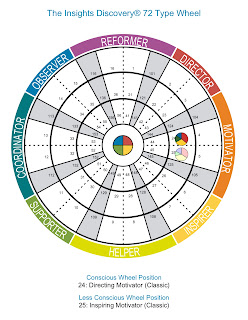Mobile workforce - use the office only for interaction
A chat today with the very talented Emily Davis convinced me that I really should start blogging again.
We were talking about how today's technology changes mean that nice office spaces are less and less critical to business success; and yet in other ways couldn't be more vital. Here's the paradox:
On the one hand, after a recent business trip to a client's UK office I was able to park up the car outside a local store to buy my lunch; then have a voice and video chat in the sunshine with colleagues in America to keep a project on track.
Similarly, last Friday I carried on an instant messaging conversation as I flitted between meetings in London and across underground public transport on the Tube where I had no Internet connection ... The result was that I had everything I wanted set up for me, confirmed by phone as I walked up to the office in Canary Wharf fifteen minutes before the meeting started.
And my day had started out with me receiving an overnight software build, installing and testing and setting up my demo on the train in to London.
One tool that helps us stay on track is FogBugz which lets us document issues and share resources across a team that doesn't have to be in the same place and, in our case, is dispersed across time zones... And a carefully thought through approach to secure storage means that we can operate from shared resources without needing access to a filing cabinet or server in the same physical space.
On the other hand, the nice office space lets us whiteboard and bounce ideas around, look folk in the eyes and pick up on the unspoken messages that only body language conveys. We can get stuff done without that facility, but it's harder.
So what I need in an office is more like a lounge in a coffee shop: somewhere bright and breezy that stimulates thought and interaction, but with space for quiet breakout sessions and small group meetings.
What I don't need, with appropriate use of today's technology, is a row of cubicles to which workers show up and attempt to appear productive just by being there. If my programmers are going to sit at a desk plugged into headphones and swapping messages with the next desk by IM and email then I can save a lot of money by letting them work somewhere else and renting a smaller space. The shared office only adds value, in this day and age, as a place to interact with folk.
Get more like this
We were talking about how today's technology changes mean that nice office spaces are less and less critical to business success; and yet in other ways couldn't be more vital. Here's the paradox:
On the one hand, after a recent business trip to a client's UK office I was able to park up the car outside a local store to buy my lunch; then have a voice and video chat in the sunshine with colleagues in America to keep a project on track.
Similarly, last Friday I carried on an instant messaging conversation as I flitted between meetings in London and across underground public transport on the Tube where I had no Internet connection ... The result was that I had everything I wanted set up for me, confirmed by phone as I walked up to the office in Canary Wharf fifteen minutes before the meeting started.
And my day had started out with me receiving an overnight software build, installing and testing and setting up my demo on the train in to London.
One tool that helps us stay on track is FogBugz which lets us document issues and share resources across a team that doesn't have to be in the same place and, in our case, is dispersed across time zones... And a carefully thought through approach to secure storage means that we can operate from shared resources without needing access to a filing cabinet or server in the same physical space.
On the other hand, the nice office space lets us whiteboard and bounce ideas around, look folk in the eyes and pick up on the unspoken messages that only body language conveys. We can get stuff done without that facility, but it's harder.
So what I need in an office is more like a lounge in a coffee shop: somewhere bright and breezy that stimulates thought and interaction, but with space for quiet breakout sessions and small group meetings.
What I don't need, with appropriate use of today's technology, is a row of cubicles to which workers show up and attempt to appear productive just by being there. If my programmers are going to sit at a desk plugged into headphones and swapping messages with the next desk by IM and email then I can save a lot of money by letting them work somewhere else and renting a smaller space. The shared office only adds value, in this day and age, as a place to interact with folk.
Get more like this



Comments